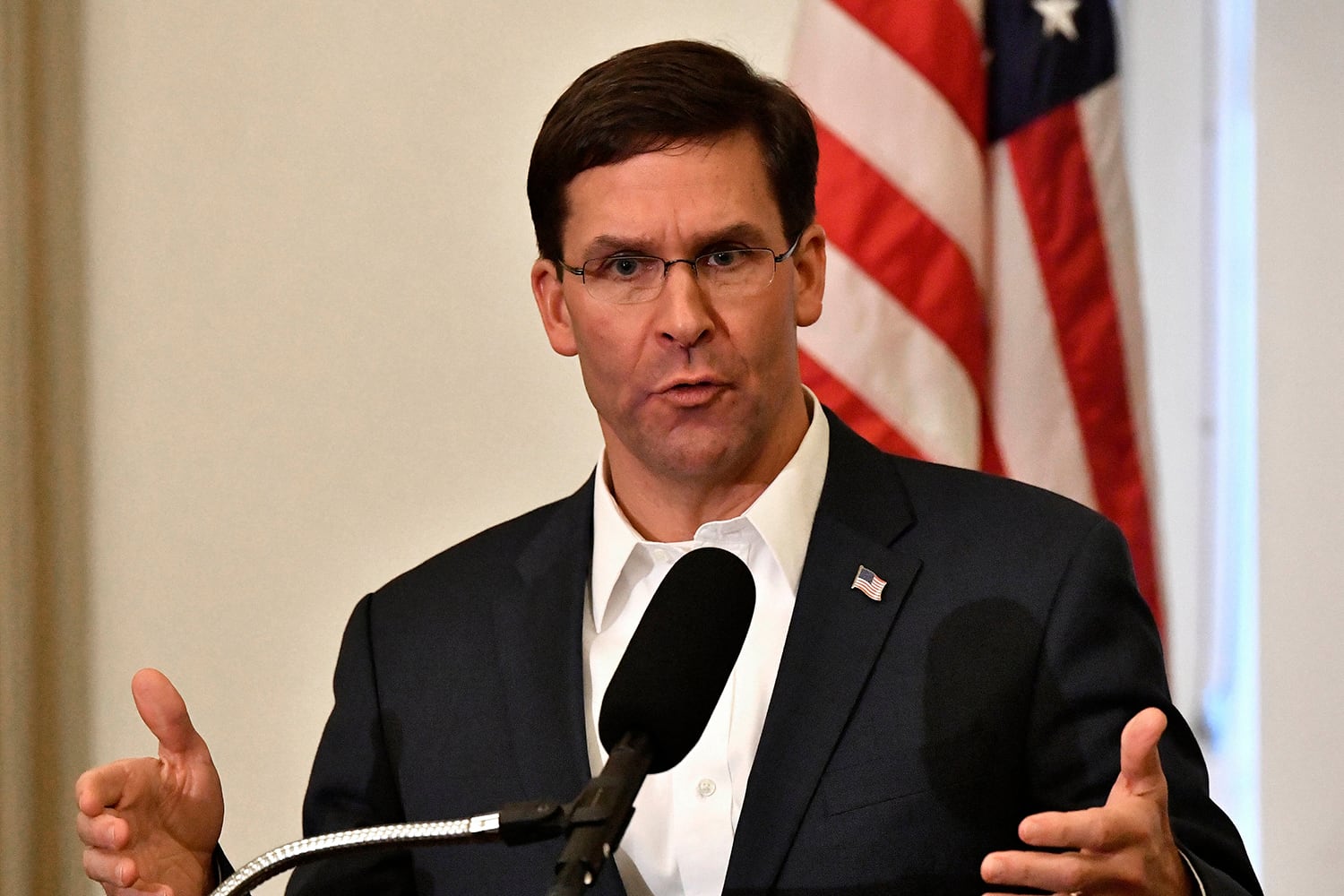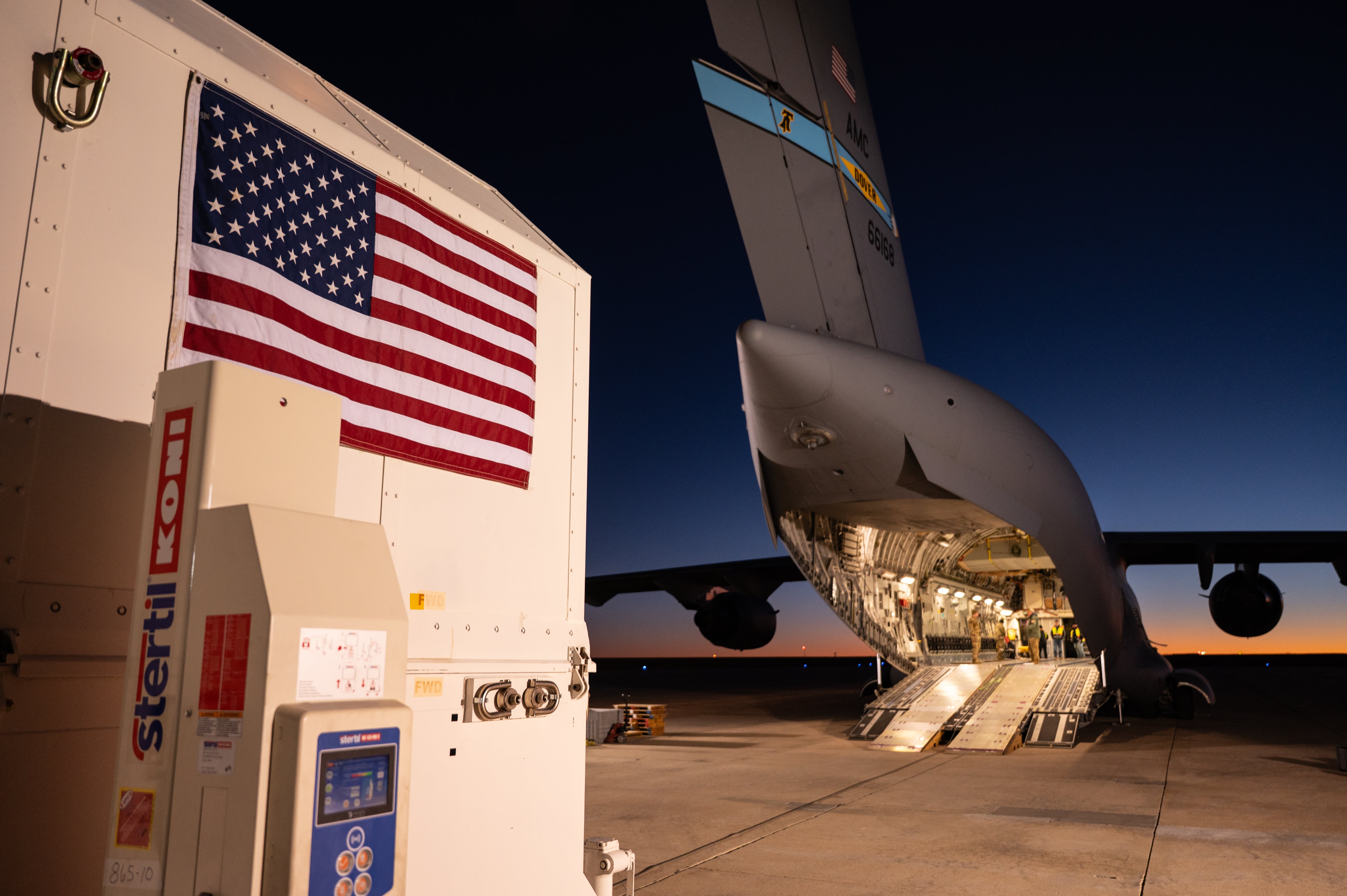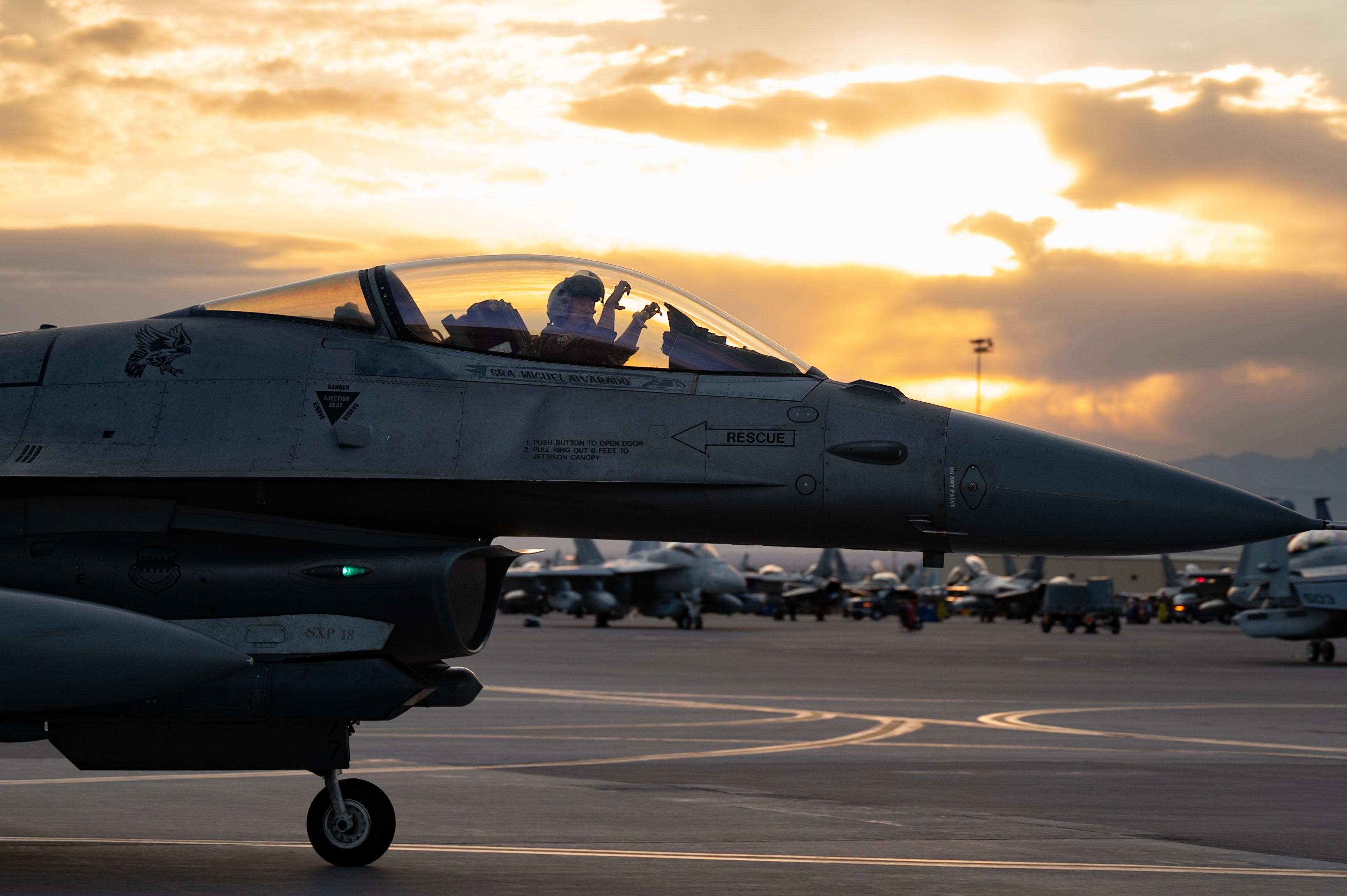Secretary of Defense Mark Esper is turning up the heat on South Korea to increase how much it is contributing in host-nation support, a move that comes after South Korea already boosted its financial contribution in host-nation support earlier this year.
Esper, who is in Seoul, said Friday that South Korea “is a wealthy country and could and should pay more to help offset the cost of defense.” There are more than 28,000 U.S. troops based in South Korea.
“It is crucial that we conclude the (defense pact) ... with increased burden-sharing by the Republic of Korea before the end of the year,” Esper said during a news conference, per Reuters.
South Korea has contributed to major U.S. projects in its country like Camp Humphreys, the largest U.S. base overseas that’s been built up over the last decade.
Then-Commander of United States Forces Korea Army Gen. Vincent Brooks said in 2018 that the project cost almost $10.8 billion and that South Korea paid approximately 90 percent of that.
“For that 90 percent, the United States remains with you 100 percent,” Brooks said in June 2018.

Esper’s latest comments come as media reports that President Donald Trump is pushing for South Korea to significantly up its financial contributions in host-nation support.
For example, CNN reported that Trump is aiming for South Korea to pay more than four times as much in 2020 to keep troops there, amid apprehension from Pentagon officials and lawmakers on both sides of the aisle.
Congressional aides told CNN that the request — which translates to $4.7 billion in host nation support — was unexpected and has unsettled South Korean leaders who now doubt the the U.S.’s commitment.
“I have no idea where the President pulled this number from,” a congressional aide told CNN.
The White House did not immediately respond to a request for comment from Military Times.
A State Department spokesperson told CNN that "sustaining the costs of our global military presence is not a burden that should fall on the US taxpayer alone, but is a responsibility that should be shared fairly with allies and partners who benefit from our presence."
Meanwhile, an anonymous administration official also told CNN that South Korea needs “to make some fundamental investments to get where they say there want to be, so this is an opportunity for them.” The official noted how things have changed since the Korean War, and that now “they’re one of the world’s leading economies.”
The State Department did not immediately respond to a request for comment from Military Times.
Experts previously told Military Times hashing out a host-nation support agreement with South Korea in February 2019 was “contentious.” Already, that round of negotiations led to South Korea paying $70 million more than it did the previous year, totaling $990 million in host-nation support.
Although host-nation support agreements have historically lasted five years, last year’s negotiations led to a one-year agreement and now is an issue the U.S. and South Korea will tackle annually.
Meanwhile, Trump signaled in August that he would exert pressure on South Korea to up financial contribution to support U.S. troops there.
“Talks have begun to further increase payments to the United States,” Trump tweeted in August. “South Korea is a very wealthy nation that now feels an obligation to contribute to the military defense provided by the United States of America. The relationship between the two countries is a very good one!”
Retired Army Col. David Maxwell, who has several decades of military service in Asia, said he doubts the South Korean National Assembly will get on board with a major increase in funding for 2020. The National Assembly will ultimately be responsible for signing off on an agreement, meaning a deal isn’t guaranteed even in a situation where both Trump and South Korean President Moon Jae-in shake hands to boost spending, Maxwell explained.
Overall, Maxwell predicted that a resolution would not be reached before December 31, which marks the deadline to reach a 2020 host-nation support agreement. Maxwell said reports indicate there are new categories of support the U.S. is trying to force onto South Korea, although there is no information publicly available yet on how these new categories were selected.
“The negotiations are already more contentious and much more complex than last year due to the new categories of support,” Maxwell, now a senior fellow at the Foundation for Defense of Democracies, said in an email to Military Times.
Maxwell also noted that there will be “ongoing problems” if host-nation support agreements continue as one-year deals.
“We will see the impact in January if there is not agreement and all host nation support is halted,” he said.
Rather than conducting their primary work, Maxwell warned military personnel in that scenario would need to take up logistical and administrative essential services in order to keep United States Forces Korea afloat without the host nation support.
“We are headed for a train wreck,” Maxwell said.





